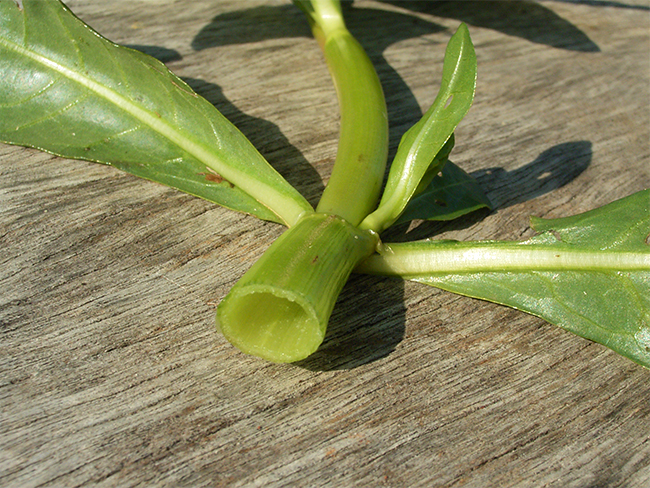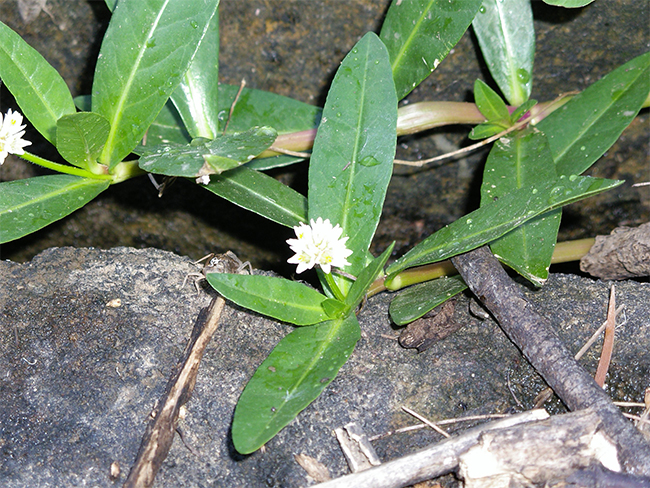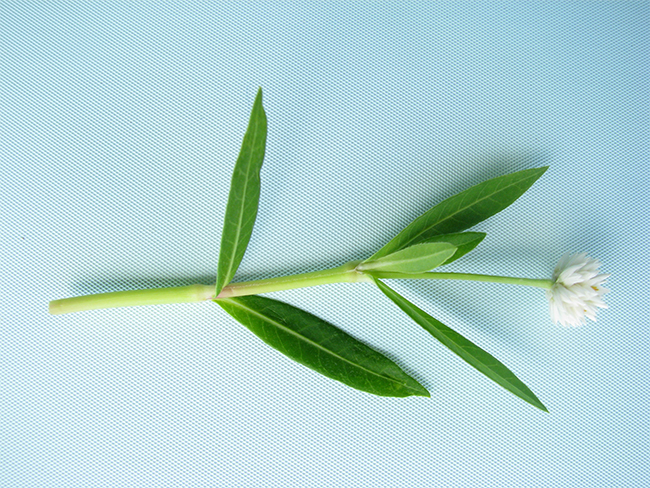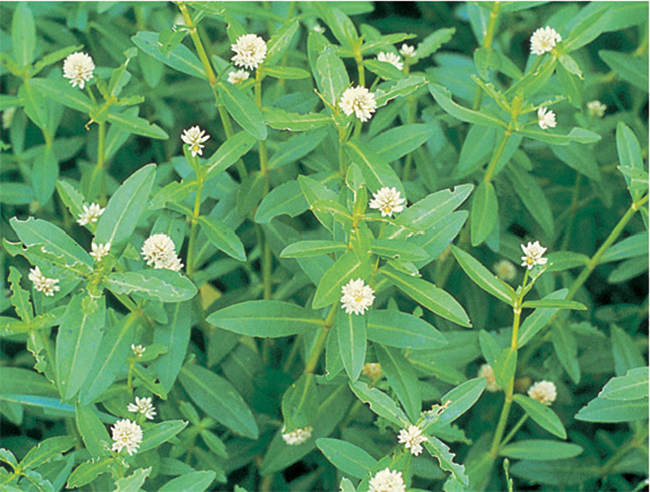Alligator weed
Scientific name: Alternanthera philoxeroides
Declaration status: Class A
Alligator weed is a Weed of National Significance. For more information, go to the Australian Government's Department of Environment website.
Alligator weed is a native of South America and is thought to have been brought to Australia in ship ballast during the 1940s.
Alligator weed forms a floating mass that spreads over the water and can double its biomass in 50 days. It grows best in nutrient rich water across a range of climates and it can tolerate saline conditions and full submersion for short periods.
Until 1995, alligator weed was thought to be restricted to four naturalised infestations in New South Wales. By 1998, it had been discovered in all capital cities and in many major regional centres.
Three infestations found in the Northern Territory (two in suburban Darwin and one in Nhulunbuy) have been eradicated.
For more information, get the alligator weed identification fact sheet PDF (752.6 KB).
Impact
Alligator weed can have all of the following impacts:
- restricts water flow
- increases sedimentation
- worsens flooding
- limits access
- provides a breeding area for mosquitoes and other pests.
Identification
You should use this as a guide. There may be other plants or weeds that look similar.
- grows on land and in water in different forms
- aquatic form may be free-floating or rooted in the ground and growing through to the surface of the water
- aquatic form has thicker and hollow stems with larger air spaces for flotation
- surface stems are mostly hairless, forming roots at the nodes
- leaves are dark green, smooth and waxy between 2cm and 7cm long and 0.5cm and 4cm wide
- visible veins on leaves originating from the central rib
- silvery white flowers produced from January to March
- flower heads between 1.2cm and 1.4cm in diameter
- seeds are smooth and elliptical in shape.
If you are unsure, contact the Weed Management Branch.
Control
If you think you may have seen alligator weed, or have this weed on your property, do not attempt to control it. Contact the Weed Management Branch immediately for assistance.
Spread
Alligator weed may be mistakenly grown as mukunu-wenna for food or can be spread in mud attached to machinery, in turf and by flood waters.
Spread prevention
You can prevent the spread of alligator weed by doing all of the following:
- map infestations to help develop a management plan
- control minor infestations, isolated outbreaks or seedlings first
- designate wash down areas and actively work to prevent contamination of clean areas
- follow strict hygiene routines to stop weed spread into clean areas
- monitor areas that you have treated and watch for re-infestations.
Give feedback about this page.
Share this page:
URL copied!



